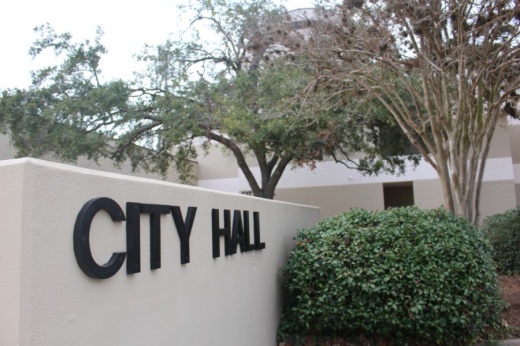Missouri City residents will pay a tax rate of $0.598035 per $100 valuation during FY 2020-21. The approved rate is approximately $0.03 less than the FY 2019-20 tax rate. The mayor and Missouri City Council members unanimously approved the lower tax rate.
The city is expected to generate $33.9 million in property tax revenue in the general fund in FY 2020-21. Property tax revenue accounts for 55% of the city’s total general fund revenue, according to Financial Services Director Allena Portis.
The approved property tax rate supports the adopted budget, which projects $151.5 million in expenditures and $136.5 million in revenue.
Expenditures are projected to be greater than revenue. Portis said this is because the city will be spending some existing resources.
Furthermore, the budget is expected to use $3.6 million in general fund balance during FY 2020-21. Of this money, $1.8 million will go toward finishing sidewalk repairs throughout the city. Other expenses from the fund include replacing city vehicles and technological equipment.
Missouri City policy requires there to be 20%-30% of operating expenses available in the general fund. Portis said the city is projected to begin FY 2020-21 with 38.47% of operating expenses in the fund and end the year with 33.57%.
City Manager Odis Jones, who was hired by a majority of City Council in July in the midst of the budget process, said the budget proposal supports several key priorities for the city.
The budget includes money to support economic development initiatives, such as a small business revolving loan program and developing a community development corporation, which became points of contention when adopting the budget.
A CDC is a nonprofit organization with the goal of revitalizing communities or areas, according to the National Alliance of Community Economic Development Associations. Jones said the Missouri City CDC would be focused on the Texas Parkway and Cartwright Road corridors.
Council Members Jeffrey Boney, Floyd Emery and Anthony Maroulis voted against adopting the budget. Prior to voting, both Boney and Maroulis said Jones has not been transparent with what is included in the budget.
“I am hugely supportive of the tax break that our citizens are set to receive, especially in the midst of COVID-19,” Boney said. “But I have to express my disappointment, my frustration and my deep concern in the lack of transparency, the failure to communicate and provide detailed information, and the last-minute actions of the current administration.”
Jones said although he came to the budget process late, that should not prohibit him from including his priorities in the budget. Speaking to establishing the CDC, he said he is asking council to try something new because previous city efforts to improve the corridors have not worked.
“What I’m asking council to do is make a concerted effort to vote on a budget that would be inclusive of investing in that area in a different way than you have before,” Jones said to council.
The budget also includes seven new full-time city employees—an economic development coordinator, two human resources positions, two communications positions, a development review coordinator and a commercial plans reviewer—and a one-time expense to implement the Lean Six Sigma program, a series of organizational tools designed to improve business processes.
Council Members Vashaundra Edwards and Cheryl Sterling, who, along with Mayor Yolanda Ford and Mayor Pro Tem Chris Preston, voted in favor of the budget, said respectively that including money for these initiatives will increase communication between the city and the community and improve the city’s ability to make data-driven decisions.
“Any time you are making data-driven decisions, it should be in line with your strategic priorities, and [it should] also drive your budget,” Sterling said. “I’m glad we are getting to that point.”





